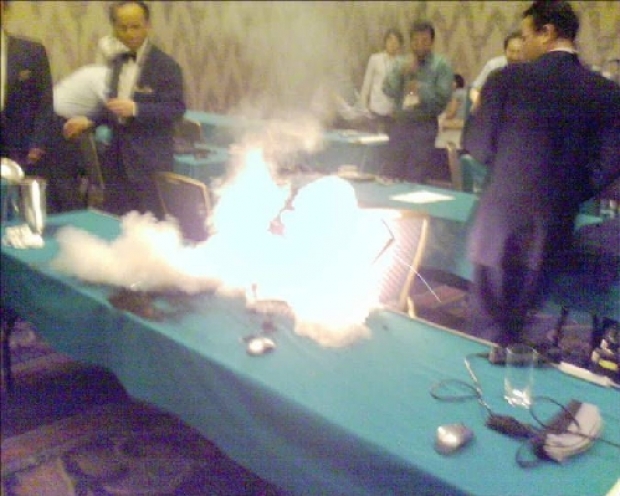The battery self-regulates according to temperature, to prevent itself from overheating. Reaching extreme temperatures, the battery is able to shut itself down, only restarting once it has cooled.
The team from Stanford University suggests that the innovation will end the days of exploding batteries in phones hoverboards, and laptops. Traditional lithium-ion batteries contain a pair of electrodes and a liquid or gel electrolyte to carry the charged particles. If the battery’s temperature reaches 150 degrees Celsius, the electrolyte can catch fire and cause an explosion.
Zhenan Bao, a chemical engineering professor at Stanford. said: “People have tried different strategies to solve the problem of accidental fires in lithium-ion batteries. While lithium-ion battery energy density and overall lifespan have improved over years of research, safety has taken a back seat and remains an ‘unresolved issue.’"
These doubts over the safety of the batteries has placed limitations on their usage at large-scale and in cutting-edge technologies. So far attempts at preventing battery fires have always resulted in poor performance. Adding flame retardants to the battery electrolytes, or providing alert systems make sense but do not ensure functionality once the battery has overheated.
Bao and her team described how they addressed this issue by adding an elastic polyethylene film, containing graphene-coated nickel particles with nanoscale spikes, to one of the battery electrodes so that electric current would flow through it.
‘To conduct electricity, the spiky particles have to physically touch one another. But during thermal expansion, polyethylene stretches. That causes the particles to spread apart, making the film non-conductive so that electricity can no longer flow through the battery,’ the report said.
In the study, the researchers applied heat to the battery using a hot-air gun. Heated to 160 degrees Celsius, the polyethylene film expanded and caused the battery to shut down. Once the temperature cooled, the film shrank and allowed the battery to generate electricity again.
The scientists have suggested that in the future temperature limits could be amended by changing the composition of the polymer materials. This would allow batteries to run at cooler or hotter temperatures before the conduction/non-conduction process kicks in.




